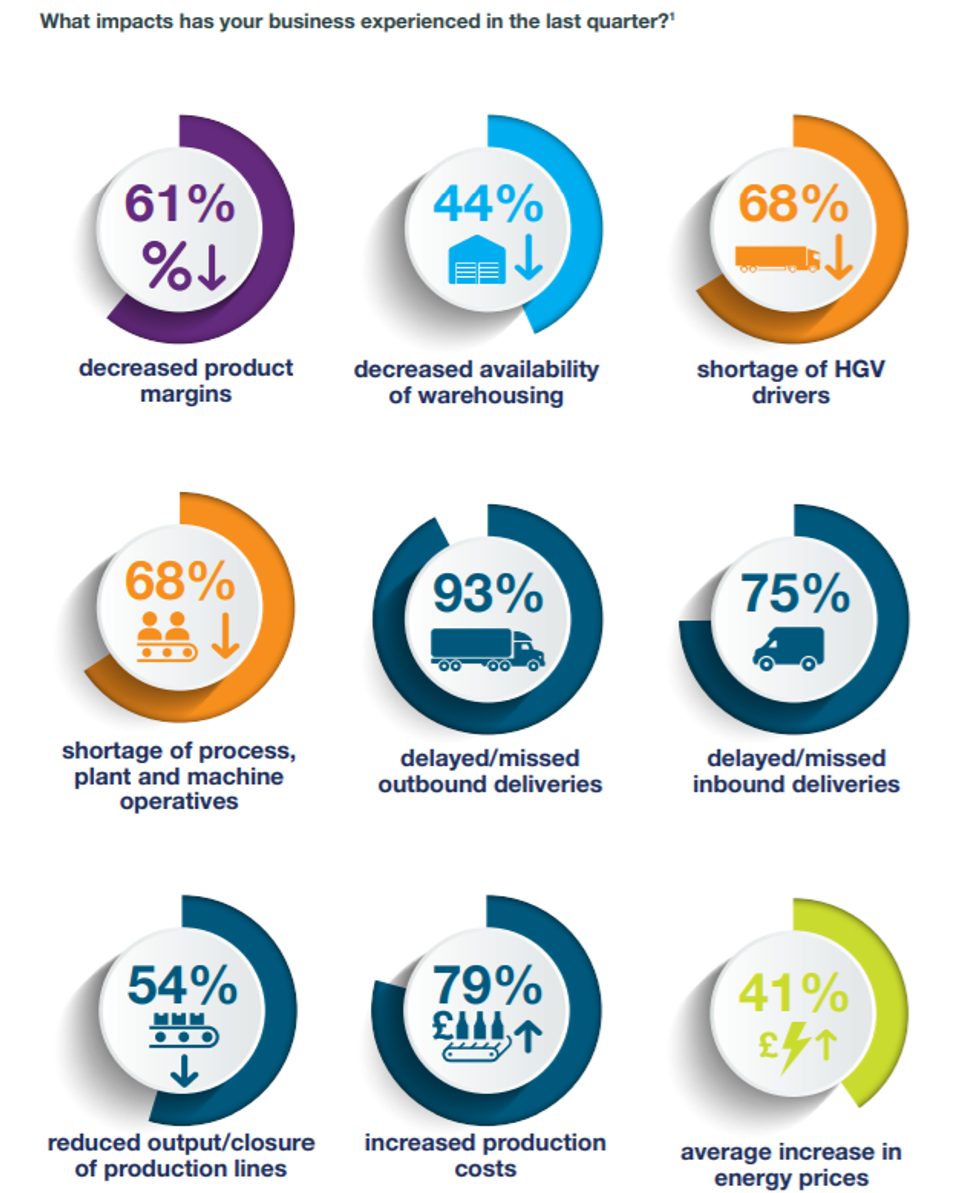Most food and drink businesses anticipate price rise as product margins continue to squeeze, said recent reports as the latest Food and Drink Federation’s (FDF) Business Confidence Report show that net business confidence fell by 55 per cent in third quarter of 2021, dropping to -51 per cent as a result of the ongoing labour shortages and associated issues that are impacting food and drink supply chains.
This is the lowest net confidence rate amongst food and drinks firms since the height of the pandemic in the second quarter last year that saw a drop of -65.2 per cent.
Firms highlighted that product margins are being squeezed, driven by the supply chain disruption and rising production costs, said reports.
A majority of businesses said they anticipate continued price rises, with 97 per cent of respondents expecting consumer price inflation to increase in the current quarter.

Severe supply chain disruption was found to be the biggest cause for concern amongst businesses, particularly the transportation of goods with 93 per cent experiencing delayed or missed outbound deliveries and 75 per cent reporting delayed or missed inbound deliveries.
Labour supply issues are also not likely to be resolved soon, with half of the respondents to the FDF survey expecting the permanent supply to decrease, with 54 per cent seeing a decrease in the fourth quarter of this year.
Businesses are full of pessimism and a further decline in business confidence is anticipated, said the FDF report. Around half of respondents expect a further decrease in business confidence in the final quarter of 2021.
Ian Wright, Chief Executive at the FDF, commented, “These results – compiled before the Prime Minister’s disappointing announcement this week – demonstrate that confidence levels across our sector have been hit by continuing supply chain disruption.
“On top of this, the confection of increasing uncertainty about Omicron, the UK’s changing trading relationships, and the re-ignition of inflation, all threaten to undermine resilience across the sector. Many businesses now expect disruption and reduced service levels to continue right through 2022 and into 2023.”






